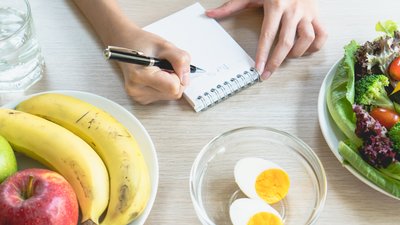When it comes to eating for bodybuilding and strength, most of us know there are a handful of staple bodybuilding foods that meet the stringent nutritional requirements and provide an anabolic stimulus. However, there are many other lesser-known and "underrated" foods that do just as good a job.
Do yourself a favor and try these foods! Add them to your weekly nutrition to support your growth, strength and recovery.
1. Oysters

{{caption}}
Oysters contain zinc, which plays a big role in hormone production, a fact that's relevant to anyone who lifts.
A 2011 study published in "Biological Trace Element Research" reported that giving trained athletes a zinc supplement for four weeks (30 mg/day) prior to exhaustive exercise resulted in higher post-workout testosterone than the placebo1,2.
The authors also stated that zinc increases the conversion rate of androstenedione to testosterone, and when combined with training, enhanced testosterone production.
Other foods high in zinc include chicken liver and pumpkin seeds.
2. Greek Yogurt
Greek yogurt is produced in part by straining excess liquid and carbohydrates from regular yogurt, yielding a higher concentration of protein. The straining process used to create Greek yogurt results in a higher concentration of casein, a "slow-digesting" protein; it slowly releases amino acids into the bloodstream.
A 2012 study published in "Medicine and Science in Sports & Exercise" showed that consuming casein before sleep provided an increase in blood amino-acid levels that was sustained throughout the night and yielded a 22 percent increase in protein synthesis.
Depending on your calorie needs, you can use full- or reduced-fat Greek yogurt as part of your muscle-building efforts. However, always strive for the plain version to reduce the effects of added sugar.
3. Steak (And Other Foods With Saturated Fats)
Many bodybuilders can benefit from saturated fats (steak and eggs, full-fat dairy, or poultry). A study published in the "American Journal of Clinical Nutrition" randomly assigned 45 men to either a high-fat/low-fiber or a low-fat/high-fiber diet. The subjects followed each diet for 10 weeks. For each group, the high-fat/low-fiber periods yielded 13 percent higher levels of total serum testosterone compared to the low-fat/high-fiber diet period.

Many bodybuilders can benefit from saturated fats (steak and eggs, full-fat dairy, or poultry).
Another study from the "International Journal of Sports Medicine" enrolled eight strength athletes and 10 active non-athletes. After comparing the subjects' dietary analyses and blood tests, it was shown that only the strength-training athletes had significant correlations between fat intake and testosterone levels.
What does this mean? It signifies that if you train with weights—particularly heavy weights—and eat a diet higher in fat, you'll obtain a higher increase in test levels compared to a normal "active" lifestyle and a higher fat diet. Keep saturated fats to no more than 15 percent of your total daily calories, however.
For health reasons, avoid trans fats altogether.
4. Oatmeal (And Other High-Fiber Foods)
Underrated and undervalued, fiber holds considerable water and provides "bulk" to food residues in the GI track. Among other benefits, fiber exerts a "scraping" action on the cells of the gut wall. Fiber can also dilute harmful chemicals or bind with them to inhibit their activity. It also hastens the speed of unwanted food residues through the digestive track.

{{caption}}
The best example of a fiber food is oatmeal. One serving contains a high amount of complex carbohydrates and 13 percent of your daily fiber needs. Many people, even strength athletes, are deficient in fiber.
Adult men should consume about 40 grams of fiber daily; women should aim for 25 grams. These numbers are based on a diet of 2,000-2,500 calories; if you eat more calories to gain weight, you need more fiber.
Since fiber is digested slowly, you should avoid eating a large amount of fiber before your training session. Likewise it may be detrimental to eat a high-fiber meal immediately after training, since the two hours post-exercise are the most critical time to have nutrients quickly available to begin the repair and regeneration process.
It's best to eat high-fiber foods for other meals throughout the day. These include whole grains and whole-grain products, fruits, vegetables, seeds, nuts, beans, and legumes.
Also, don't forget about soluble-fiber-rich foods such apples, citrus fruits, carrots, beans, peas, and oats.
5. Grapefruit
Grapefruit contains ample vitamin C to facilitate adequate function of your metabolic system. Research has demonstrated that vitamin C has some fat-burning capabilities, and half a grapefruit contains approximately 40 mg of vitamin C.
Studies have also noted that chemicals in grapefruit may reduce levels of insulin, helping to regulate fat metabolism. When insulin is steady, the body processes energy more efficiently.

Studies have also noted that chemicals in grapefruit may reduce levels of insulin, helping to regulate fat metabolism.
In a 12-week study conducted at The Scripps Research Institute (La Jolla, Calif.), researchers discovered that subjects who consumed a half grapefruit before each meal, three times per day, lost an average of 3.5 pounds, while subjects who consumed the same meals without grapefruit lost only 0.5 pounds.
6. Beets/Beetroot
The value behind beets and beetroot juice lies in their ability to increase the body's production of nitric oxide (NO), a gas which causes blood vessels to dilate to accommodate greater blood flow.
Improved blood flow leads to greater oxygen and nutrient delivery to muscles and other surrounding tissues. This improvement likely aids in improved athletic performance and recovery—which is essential for mass building.
A study published in the "Journal of the Academy of Nutrition and Dietetics" found that eating two medium-sized beets an hour and 15 minutes prior to exercise improved performance, reduced the perceived level of exertion, and decreased the amount of oxygen subjects' bodies needed to complete a workout.
7. Grass-Fed Beef and Butter

{{caption}}
Grass-fed beef and butter are by far superior to regular beef and butter, mainly because of the higher nutrient content like CLA.
Depending on the breed of cow, grass-fed beef contains 2-5 times more omega-3s than grain-fed beef.
In addition, research shows that grass-fed beef consistently contains a higher proportion of stearic acid, which doesn't raise blood cholesterol levels.
8. Bananas
Bananas contain the enzyme bromelain, which some studies have found boosts a man's libido. They are also rich in B vitamins such as riboflavin. Bromelain is also abundant in pineapples, which have been used for centuries in Central and South America to treat indigestion and reduce inflammation.
9. Grapes
The skins of red grapes contain resveratrol, an organic chemical which contains polyphenols. Similar to many fruits and vegetables, these polyphenols act as antioxidants in the body and can help scavenge free radicals. These unstable molecules have damaging effects throughout the body and to many bodily systems.

{{caption}}
Resveratrol has important regulatory function in grapes; it helps protect them from invasion by bacteria and fungi.
Resveratrol is commonly found in red wine—the skin is taken off earlier in the fermentation process of white wines, so they have less resveratrol—and also and can be purchased as supplements.
The resveratrol in grapes is also a proven aromatase inhibitor. Aromatase is an enzyme which converts testosterone and other androgens into estrogen.
Inhibiting its action is an important factor for people wanting to reduce estrogen in favor of maintaining and increasing lean mass, helping to promote testosterone.
Of note: The concentration of resveratrol is much higher in the skin of red grapes compared to red wine. Bottom line: Eat the fruit and steer clear of the drink.
References
- Neek, L., Gaeini, A., Choobineh, S. Effect of Zinc and Selenium Supplementation on Serum Testosterone and Plasma Lactate in Cyclist After an Exhaustive Exercise Bout. Biological Trace Element Research. 9 July 2011.
- Chang, C., Choi, J., Kim, H., Park, S. Correlation Between Serum Testosterone Level and Concentrations of Copper and Zinc in Hair Tissue. Biological Trace Element Research. 14 June 2011.

